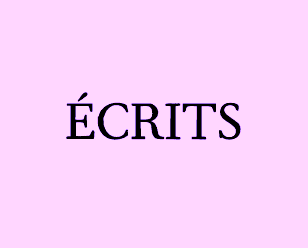“Variations on the Standard Treatment” in 10 moves — that’s our wager in this week’s installment of Often Overlooked Essays in Écrits.
I’m not sure how I arrived at this number, or whether these mini-lectures even attempt to adhere to it, but there are definitely four clear themes in this episode:
The psychoanalytic semantics initially discovered by Freud, in which free associations are never exactly “free” because parapraxes aren’t just symptoms of underlying clinical structures but also signifiers in a sociolinguistic order known as the symbolic.
The theory and technique of psychoanalytic anemnesis enabled by Freud’s momentous discovery, in which secret affinities between present speech and past experience allow the latter to be recovered, reclaimed, and, above all, resubjectivized as one’s history — and with no small amount of self-compassion along the way.
The reciprocal misrecognition of ego and unconscious alike that many of Freud’s inheritors, especially in the tradition of ego psychology, have allowed to flourish by confusing the cause and effect resistance in analytic experience.
The fragmented bodies, specular images, mashed-up egos, and others big and small that populate child development — because apparently there’s still a lot of confusion about the mirror stage, too?!
Be on the lookout for episode two later this week — and see you on Wednesday for our opening session on THE DRIVE!













Share this post